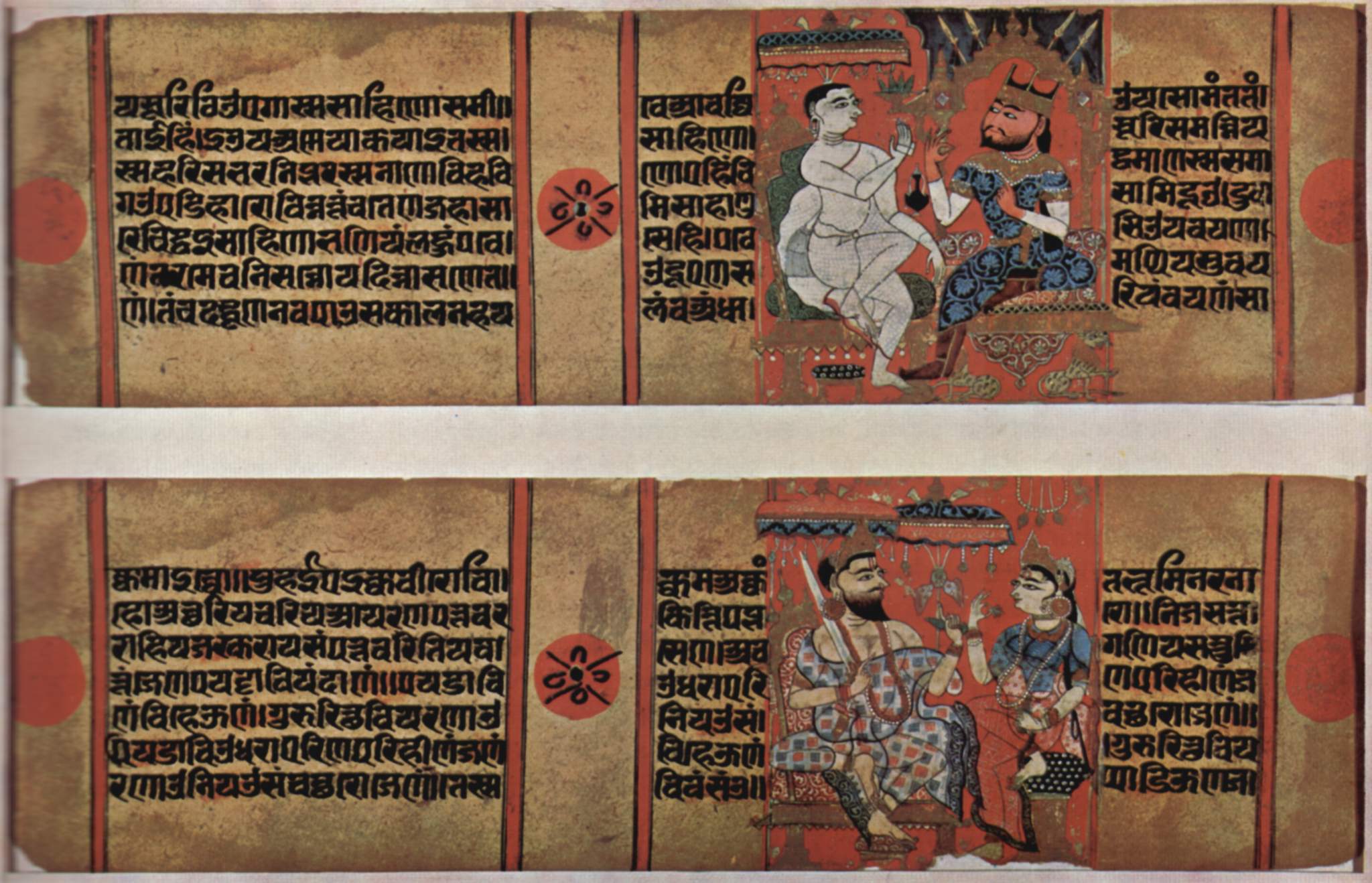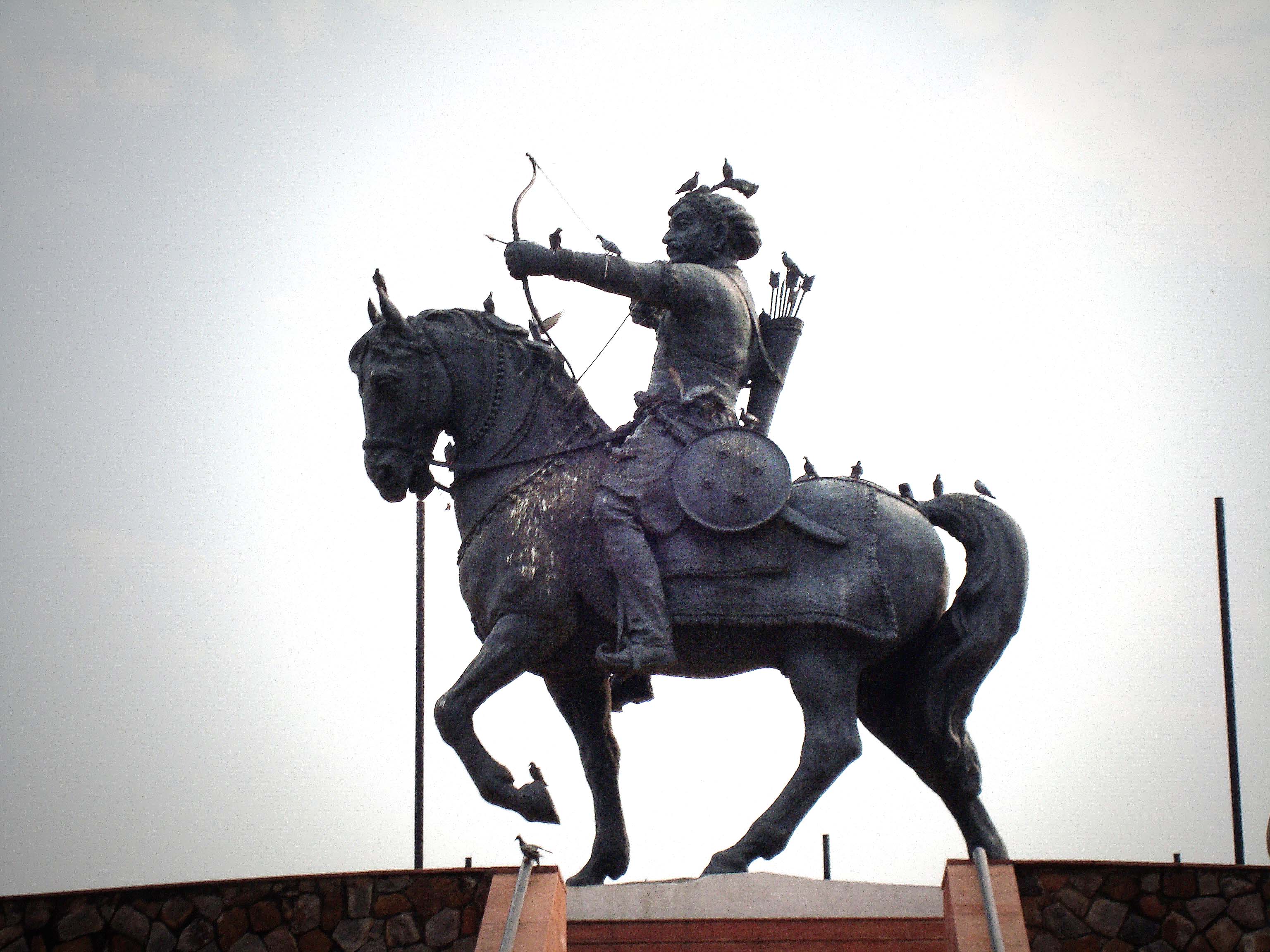|
Prithviraj Chauhan (epic)
''Prithiviraj Chauhan'' () is a Nepali-language epic ('' mahakavya'') by ''Mahakavi'' Laxmi Prasad Devkota. It was written in 1946 and was published in 2049 BS () by Sajha Prakashan. It is based on the life of Prithviraj Chauhan. It is one of the six ''mahakavya'' composed by the poet. It is written in ''Jhyaure'' ''chhanda'' (folk Nepali metre). Background It is estimated that Devkota wrote this epic in 1946 when he was a lecturer at Tri-Chandra College. It was published posthumously by the publication itself. The manuscript was kept away in some place for many years. There were lots of scribbling in the manuscript. The publishing housed contacted the copyeditor, Shyam Das Vaishnav and Devkota's son Padma Devkota for their help. In the manuscript among the 16 cantos, the 15th canto was missing. According to copyeditor, Devkota had planned to write the 15th canto but did not and he copied the manuscript as it was. The publishing house itself took care of the situation and reali ... [...More Info...] [...Related Items...] OR: [Wikipedia] [Google] [Baidu] |
Laxmi Prasad Devkota
Laxmi Prasad Devkota ( ne, लक्ष्मीप्रसाद देवकोटा) (1909-1959) was a Nepali poet, playwright, and novelist. Honored with the title of Mahakabi ( ne, माहाकवि) in Nepali literature, he was known as a poet with a golden heart. He is considered to be the greatest and most famous literary figure in Nepal. Some of his popular works include the best-selling '' Muna Madan'', along with ''Sulochana'', ''Kunjini'', ''Bhikhari'', and ''Shakuntala''. Life Early life Devkota was born on the night of Lakshmi Puja on 13 November 1909 (27 Kartik 1966 BS) to father Teel Madhav Devkota and mother Amar Rajya Lakshmi Devi in Dhobidhara, Kathmandu. His father was a Sanskrit scholar, so he attained his basic education under the custodianship of his father. He started his formal education at Durbar High School, where he studied both Sanskrit grammar and English. After finishing his matriculation exams from Patna at the age of 17, he pursued B ... [...More Info...] [...Related Items...] OR: [Wikipedia] [Google] [Baidu] |
Sajha Prakashan
Sajha Publications ( ne, साझा प्रकाशन, lit=Common Publication, translit=Sajha Prakashan) is the oldest publishing house of Nepal. It was established in 1913 and is funded by the Government of Nepal. Headquartered in Lalitpur, it has regional branches in Biratnagar, Pokhara, Nepalgunj and Dhangadi. Litterateur and former bureaucrat Prahlad Pokhrel is the general manager of the publishing house. History Sajha Publications was established in 1913 (1970 BS) by the then prime minister of Nepal, Chandra Shumsher as ''Gorkha Bhasa Prakashani Samiti'' (Gorkha Language Publishing Committee). It was renamed as ''Nepali Bhasa Prakashani Samiti'' (Nepali Language Publishing Committee) in 1933 (1990 BS). It was finally revamped as ''Sajha Prakashan'' in 1964 (2021 BS). After the rebranding as Sajha Prakashan, King Mahendra became the patron of the organization. The publication used to work closely with the ''Pathyakram Vikas Samiti'' (Curriculum Development Committee ... [...More Info...] [...Related Items...] OR: [Wikipedia] [Google] [Baidu] |
Sajha Puraskar
Sajha Puraskar () is a literary award given by Sajha Publications. It is presented annually to the best book published by Sajha Publication. History It was established in 1967 and the first award was given to Bhupi Sherchan for his book ''Ghumne Mechmathi Andho Manche'' in 1969. Banira Giri is the first woman to receive the Sajha Puraskar. In 2013, the prize money was 49,000 Nepalese rupees (NPR). Recipients See also * Madan Puraskar The Madan Puraskar ( ne, मदन पुरस्कार) is a literary honor in Nepal which Madan Puraskar Guthi confers annually for an outstanding book in the Nepali language published within the calendar year. It is considered the most pre ... * Padmashree Sahitya Puraskar * Jagadamba Shree Puraskar References Notes * {{Nepali literature, state=collapsed Nepalese literary awards 1967 establishments in Nepal Awards established in 1967 ... [...More Info...] [...Related Items...] OR: [Wikipedia] [Google] [Baidu] |
Mahakavya
Mahākāvya (lit. great kāvya, court epic), also known as ''sargabandha'', is a genre of Indian epic poetry in Classical Sanskrit. The genre is characterised by ornate and elaborate descriptions of scenery, love, battles and so on — in short, everything that tests a poet's skill at description. Typical examples of ''mahākāvya'' are the ''Kumarasambhava'' and the '' Kiratarjuniya.'' It is considered the most prestigious form in the Sanskrit literature. The genre evolved from the earlier epics, the Mahabharata and the Ramayana. Despite the length of ''mahākāvya''s (15-30 cantos, a total of about 1500-3000 verses), they are still much shorter than the Ramayana (500 cantos, 24000 verses) and the Mahabharata (about 100000 verses). Classical examples The Buddhist poet and philosopher Aśvaghoṣa (c. 80 – c. 150 CE) is one of the earliest Sanskrit poets with surviving Kāvya literature. His '' Buddhacarita'' (''Acts of the Buddha'') calls itself a ''mahākāvya'' and wa ... [...More Info...] [...Related Items...] OR: [Wikipedia] [Google] [Baidu] |
Vikram Samvat
Vikram Samvat ( IAST: ''Vikrama Samvat''; abbreviated VS) or Bikram Sambat B.S. and also known as the Vikrami calendar, is a Hindu calendar historically used in the Indian subcontinent. Vikram Samvat is generally 57 years ahead of Gregorian Calendar, except during January to April, when it is ahead by 56 years. Alongside Nepal Sambat, it is one of the two official calendars used in Nepal. In India, it is used in several states. The traditional Vikram Samvat calendar, as used in India, uses lunar months and solar sidereal years. The Nepali Bikram Sambat introduced in 1901 CE, also uses a solar sidereal year. History A number of ancient and medieval inscriptions used the Vikram Samvat. Although it was reportedly named after the legendary king Vikramaditya, the term "Vikrama Samvat" does not appear in the historical record before the 9th century; the same calendar system is found with other names, such as Krita and Malava. In colonial scholarship, the era was believed to be ... [...More Info...] [...Related Items...] OR: [Wikipedia] [Google] [Baidu] |
Prithviraj Chauhan
Prithviraja III ( IAST: Pṛthvī-rāja; reign. – 1192 CE), popularly known as Prithviraj Chauhan or Rai Pithora, was a king from the Chauhan (Chahamana) dynasty who ruled the territory of Sapadalaksha, with his capital at Ajmer in present-day Rajasthan. Ascending the throne as a minor in 1177 CE, Prithviraj inherited a kingdom which stretched from Thanesar in the north to Jahazpur (Mewar) in the south, which he aimed to expand by military actions against neighbouring kingdoms, most notably defeating the Chandelas. Prithviraj led a coalition of several Rajput kings and defeated the Ghurid army led by Muhammad Ghori near Taraori in 1191 AD. However, in 1192 CE, Ghori returned with an army of Turkish mounted archers and defeated the Rajput army on the same battlefield. Prithviraj fled the battlefield, but was captured near Sirsa and executed. His defeat at Tarain is seen as a landmark event in the Islamic conquest of India, and has been described in several semi-lege ... [...More Info...] [...Related Items...] OR: [Wikipedia] [Google] [Baidu] |
Tri-Chandra College
Tri-Chandra Multiple Campus, more colloquially known as Tri-Chandra College, is a constituent campus of Tribhuvan University located in Ghantaghar, Kathmandu. Found in 1918 by Chandra Shumsher, it is the oldest institute of higher learning in Nepal. Etymology The current name ''Tri-Chandra'' is a truncated combination of two words: ''Tribhuvan'' for Mahārājādhirāja Tribhuwan Bir Bikram Shah and ''Chandra'' for Rana Prime Minister Chandra Shumsher. The college was originally named Tribhuvan Chandra Intermediate Campus but later renamed and shortened to its current name. History Nepal's first institution of higher education, Tri-Chandra College, was established in 1918 by Chandra Shumsher Jang Bahadur Rana. The college introduced science at the Intermediate level a year later, marking the genesis of formal science education in the country. In 1924, it became a full four year institution with an enrollment of just 30. However, up until the advent of democracy in 1951, ... [...More Info...] [...Related Items...] OR: [Wikipedia] [Google] [Baidu] |
Muna Madan
''Muna Madan'' ( ne, मुनामदन) is a 1936 Nepali-language episodic love poem written by Laxmi Prasad Devkota. It is about Madan, newly married to Muna, who leaves for Lhasa in Tibet to make his fortune, despite protests from his wife. Synopsis ''Muna Madan'' follows the life of Madan, a Chhetri man from Kathmandu who leaves Muna, his wife, to go to Lhasa to earn a fortune. He is cautioned against leaving by both Muna and his elderly mother, but he decides to leave anyway. While he initially intends to spend just a few weeks in Lhasa, he spends a longer time there, becoming entranced by the city's beauty. He finally sets off for Kathmandu but falls sick with cholera on the way. His travelling companion, Ram, returns to Kathmandu and tells Muna that her husband has died. But Madan is rescued by a 'Bhote', a Tibetan man. Tibet is called 'Bhot' in the Nepali language, drawn from the classical Tibetan name for Tibet, Bod. The Tibetan nurses Madan back to health, leading ... [...More Info...] [...Related Items...] OR: [Wikipedia] [Google] [Baidu] |
Champa (novel)
''Champa'' ( ne, चम्पा) is the only novel written by Laxmi Prasad Devkota. The book was written around the year 1947–48 and published posthumously 20 years later. Synopsis The story describes the life of a 12-year-old girl, Champa, who is married to Ramakanta but being self-reliant, she could not stay her home and she runs away. Due to some disease, the husband cannot have physical contact with the girl. One day he decides to leave home because he fears that if he goes close to his "tempting" wife his life may be at risk. Due to this Champa is blamed by her in-laws. This novel has however no distinct ending. Themes The novel is unique among Devkota's works as the only one depicting contemporary social issues and roles of women in society. Set in Kathmandu , pushpin_map = Nepal Bagmati Province#Nepal#Asia , coordinates = , subdivision_type = Country , subdivision_name = , subdivision_type1 = Provinces of ... [...More Info...] [...Related Items...] OR: [Wikipedia] [Google] [Baidu] |
Shakuntala (epic)
Shakuntala ( ne, शकुन्तला) is a 1945 Nepali epic poem written by Laxmi Prasad Devkota and published by Sajha Publications. It is considered to be one of the greatest works of Laxmi Prasad Devkota and indeed of the entire Nepali literature. Introduction The epic is based on the classical play Shakuntala by ancient Sanskrit poet Kālidāsa. It is considered the first original epic in the Nepali language. Although it is based on an ancient work, the work has sufficient originality to be considered as such, specially compared to the first Nepali epic Bhanubhakta Ramayana which was a translation of Valmiki Ramayana The ''Rāmāyana'' (; sa, रामायणम्, ) is a Sanskrit literature, Sanskrit Indian epic poetry, epic composed over a period of nearly a millennium, with scholars' estimates for the earliest stage of the text ranging from the 8th .... It was published in 1945. Devkota took just three months to complete the entire epic. Translation Laxmi ... [...More Info...] [...Related Items...] OR: [Wikipedia] [Google] [Baidu] |
Nepalese Epics
Nepali or Nepalese may refer to : Concerning Nepal * Anything of, from, or related to Nepal * Nepali people, citizens of Nepal * Nepali language, an Indo-Aryan language found in Nepal, the current official national language and a language spoken in India * Nepal Bhasa, a Sino-Tibetan language found in Nepal, formerly the official national language * Nepalese literature * Nepalese cuisine * Nepalese culture * Nepali cinema * Nepali music Other uses * ''Nepali'' (film), a 2008 Indian Tamil-language film See also * Nepal (other) * * * Languages of Nepal * Nepal Nepal (; ne, नेपाल ), formerly the Federal Democratic Republic of Nepal ( ne, सङ्घीय लोकतान्त्रिक गणतन्त्र नेपाल ), is a landlocked country in South Asia. It is ma ... is a south Asian country with a population of nearly 30 million. {{disambiguation Language and nationality disambiguation pages ... [...More Info...] [...Related Items...] OR: [Wikipedia] [Google] [Baidu] |



